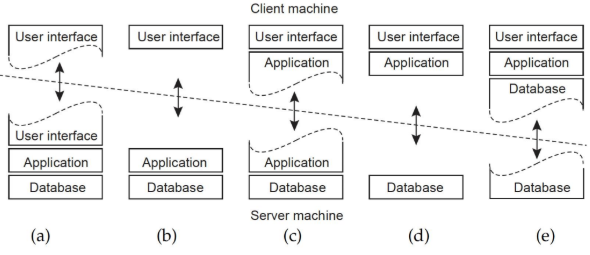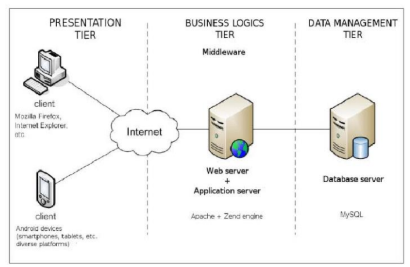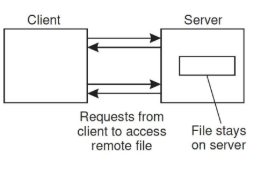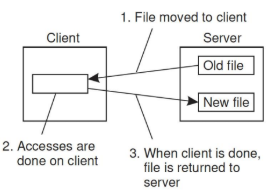layered-system architecture
1/19
There's no tags or description
Looks like no tags are added yet.
Name | Mastery | Learn | Test | Matching | Spaced |
|---|
No study sessions yet.
20 Terms
layers
logical separations of a software application
tiers
physical separations of a software application
server
a process implementing a specific service (file systems service or a database service)
client
a process that requests a service from a server by sending it a request and subsequently waiting for the server’s reply
request-reply behavior or client-server interaction
connectionless protocol through a reliable network, connection-oriented protocol (WAN)
two-tiered architecture
client then database and application server

three-tiered architecture
organizes applications into logical and physical computing tiers

presentation tier
user interface
logic or application tier
where data is processed
data tier
where application _ is stored and managed
network file system
sun microsystems for unix; comes with a communication protocol that allows clients to access the files stored on a server
remote file systems
clients are offered transparent access to a file system that is managed by a remote server; client is offered only an interface containing various file operations, but the server is responsible for implementing those operations.

upload/download model
file transfer protocol, a client can _ delete, rename, move and copy files on a server

virtual file system
operations on the interface are either passed to a local file system, or passed to a separate component known as the NFS client, which takes care of handling access to files stored at a remote server; communications are done through RPCs
the web
documents turn from being purely static and passive to dynamically generated content; supports services instead of just documents
uniform resource locator
specifies where a document is located by embedding the DNS name of its associated server along with a file name by which the server can look up the document in its local file system; specifies the application-level protocol for transferring the document across the network
browser
accepts input from a user mostly by letting the user select a reference to another document, which it then subsequently fetches and displays (HTTP, HTML, and Javascript)
peer-to-peer networks
fundamental aspect of distributed systems, where computers communicate directly with each other, rather than through a central server; operate on the principles of decentralization and equality where each node in the network can act both as a client and a server, sharing resources like processing power, storage, or files with other nodes.
symmetrically distributed system architectures
structured peer-to-peer systems, unstructured peer-to-peer systems, hierarchically organized peer-to-peer networks
hybrid system architectures
cloud computing, edge-cloud architecture, blockchain architecture